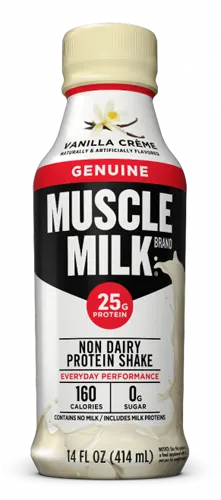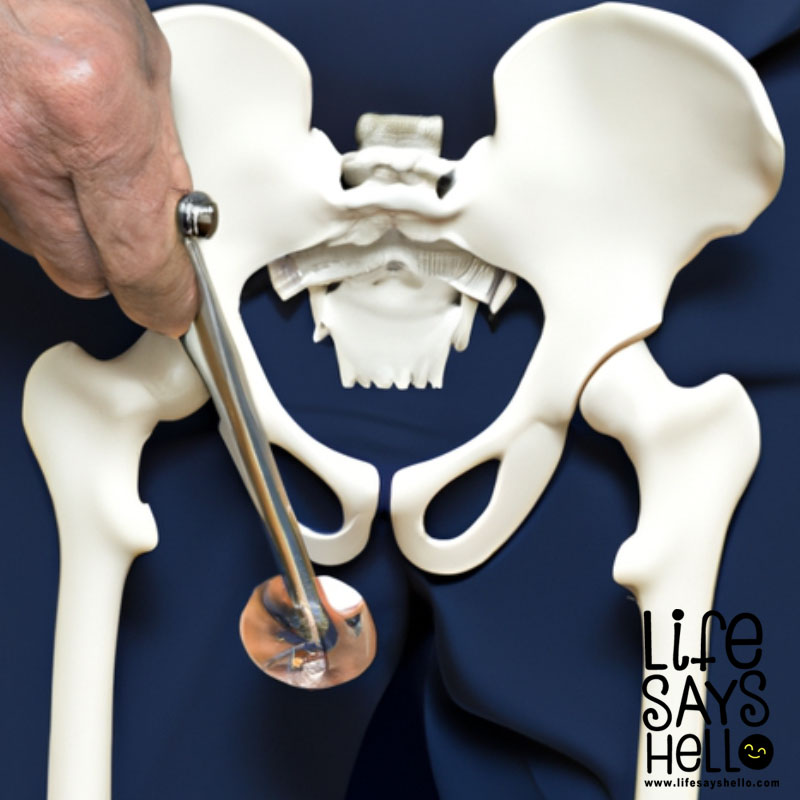Is It Safe to Drink Muscle Milk While Pregnant? What You Need to Know

Pregnancy is an exciting time full of growth and change. As an expectant mother, you want to make sure you’re fueling your body properly to support the development of your growing baby. This leads many women to consider adding supplements like protein shakes to their diets. Muscle Milk is a popular protein shake, but is it safe to drink during pregnancy?
There are some potential risks associated with consuming protein shakes and supplements during pregnancy. That’s why it’s incredibly important to consult with your doctor before adding anything new to your diet. In this article, we’ll explore the possible risks of drinking Muscle Milk in pregnancy, look at healthier alternatives, and summarize key takeaways to help inform your decision.
Why Pregnant Women May Consider Protein Shakes
First, let’s look at why protein shakes appeal to many pregnant women in the first place. When you’re eating for two, it’s essential to take in adequate protein. Protein is vital for cell growth and development, which is happening rapidly in your growing baby.
The recommended dietary allowance (RDA) for protein during pregnancy is 71 grams per day in your second and third trimesters. That’s 25 grams more than the 46 grams recommended for non-pregnant women. While most women can meet this requirement through a balanced diet, some turn to protein shakes if they’re struggling to take in enough protein from foods alone.
Muscle Milk is a popular protein shake containing a blend of milk-based and plant-based proteins. With 20 grams of protein per serving, it may seem like an easy way to up your daily intake. However, there are good reasons to exercise caution with protein powders during pregnancy.
Potential Risks of Consuming Muscle Milk While Pregnant

While the protein in Muscle Milk can help supplement your diet, there are some potential risks associated with its ingredients that you should consider.
Risk of Contaminants Like Heavy Metals
Past testing has detected concerning levels of contaminants like lead, cadmium, and arsenic in some Muscle Milk products. These heavy metals can be toxic and have been linked to impaired fetal development and damage to the baby’s nervous system.
In 2010, the California Department of Public Health warned consumers that levels of lead in three flavors of Muscle Milk exceeded the maximum allowable dose. An independent test in 2011 also found excessive levels of arsenic, cadmium, and lead in multiple Muscle Milk products.
While formula changes may have reduced this risk, it highlights the potential for contaminants in protein powders - something especially hazardous during pregnancy. Speak to your doctor about recent testing before consuming any supplement.
Added Sugars and Caffeine
Some Muscle Milk flavors and products contain added sugars as well as caffeine from ingredients like coffee extract. Consuming too much added sugar and caffeine during pregnancy can increase the risk of complications.
The 2020-2025 Dietary Guidelines for Americans recommend limiting added sugars to less than 10% of daily calories and caffeine to less than 200mg per day during pregnancy. Drinking high-sugar, caffeinated protein shakes in excess could potentially cause issues.
Risk of Bacterial Contamination
Muscle Milk contains dairy-based ingredients like milk proteins. Any product made with milk runs a risk of bacterial contamination. Pasteurization kills most bacteria, but infections like salmonella, listeria, and E. coli remain a concern.
Pregnant women are at higher risk of foodborne illness. Bacteria like listeria can cross the placenta and infect the baby, potentially leading to miscarriage, stillbirth, or birth defects. This is why it’s critical to avoid unpasteurized dairy.
Importance of Consulting Your Doctor
Given the potential presence of contaminants, added sugars, caffeine, and foodborne illness risk, it’s crucial to consult your obstetrician or dietitian before consuming Muscle Milk or any protein shakes in pregnancy.
They can review your diet history and recommend whether supplementation is appropriate for your needs. Never add supplements during pregnancy without medical approval.
Side Effects of Excessive Protein Intake
In addition to the concerns specific to Muscle Milk, consuming too much protein in general during pregnancy can also be problematic.
Here are some potential side effects of excessive protein intake while pregnant:
Fetal Development Issues
Some studies link very high maternal protein intake to impaired fetal growth and development. Possible issues include lower birth weight, higher preterm delivery risk, and greater infant mortality.
Consuming more than twice the RDA of protein for long periods may potentially impact the baby’s growth and nutrient status. More research is still needed, but it highlights the importance of balancing protein with other essential nutrients.
Strain on the Kidneys
The kidneys filter extra protein byproducts from the bloodstream. Eating very high amounts for extended periods can overwork the kidneys. This strain may cause dehydration and electrolyte imbalances.
Kidney issues during pregnancy increase the risks of low amniotic fluid, preterm labor, preeclampsia, and other complications. That’s why kidney health is so vital for expectant mothers.
Unhealthy Weight Gain
Some protein-rich foods are also high in saturated fat and calories, like red meat and full-fat dairy. Consuming too many of these items can lead to excess weight gain in pregnancy.
Gaining too much weight beyond medical guidelines increases the likelihood of complications like gestational diabetes, preeclampsia, preterm birth, and cesarean delivery.
Toxic Ingredients
Protein powders may contain heavy metals, BPA from plastic packaging, pesticide residues, and other harmful substances. These toxins can cross the placenta and impact the developing baby’s health.
That’s why it’s critical to consult your doctor before using protein supplements in pregnancy and verify any potential toxicity risks with the manufacturer.
Other Possible Side Effects
Finally, excessive protein intake can also cause side effects like:
- Digestive issues - Gas, bloating, diarrhea
- Dehydration - From excess urea, an ammonia byproduct
- Fatigue, headaches
- Calcium loss - Increased calcium excretion through urine
- Liver and kidney strain - Impairs function over time
These signs indicate your protein intake may be too high during pregnancy. Be sure to discuss optimal amounts with your doctor and balance it out with other nutrients.
Healthier Alternatives to Muscle Milk During Pregnancy
The potential drawbacks of Muscle Milk and other protein powders highlight the importance of getting protein from natural, minimally processed sources during pregnancy. Here are some healthier alternatives:
Milk Alternatives
Non-dairy milks like soy, almond, coconut, and hemp milk are great options if you have lactose intolerance or other reasons for avoiding dairy. Opt for unsweetened, calcium and vitamin D-fortified varieties.
Many of these milk alternatives contain 7-10 grams of protein per serving. The key is to stick to plain, additive-free versions to limit sugar intake.
Pasteurized Dairy Products
Plain milk, yogurt, and cheese are good real food sources of protein and calcium. Opt for pasteurized, low-fat or nonfat items to limit saturated fat intake.
An 8-ounce glass of milk has 8 grams of protein. A 6-ounce container of yogurt averages 10-15 grams. And 1.5 ounces of hard cheese contains about 10 grams of protein.
Other Whole Food Sources
Beans, lentils, eggs, nuts, seeds, fish, poultry, and lean red meat are all excellent protein choices during pregnancy. Aim for a wide variety to obtain other key nutrients as well.
Focus on whole, minimally processed options to avoid excessive calories, sugars, and other additives. Prepare meat properly to reduce infection risk.
Key Takeaways on Muscle Milk and Protein Intake During Pregnancy
To wrap up, here are some key takeaways to inform your decision about consuming Muscle Milk and protein supplements during pregnancy:
- Consult your doctor before using any supplements, including protein powders.
- Muscle Milk may contain heavy metal contaminants, sugars, caffeine, and foodborne illness risk.
- Too much protein intake can impair fetal development, strain the kidneys, cause unhealthy weight gain, and more.
- Healthier alternatives include milk substitutes, yogurt, cheese, eggs, beans, nuts, seeds, fish, poultry, and lean meat.
- Focus on getting protein from wholesome, balanced real foods whenever possible.
- Read labels to avoid excessive calories, saturated fat, sugars, toxins, and other additives.
- Let your doctor guide you on the ideal protein intake for each trimester based on your health status.
- Report any side effects and adjust your diet per your doctor’s recommendations.
Remember, pregnancy nutrition should focus on eating a wide variety of healthy, minimally processed foods from each food group. Protein is just one piece of the puzzle. Consult your healthcare provider to determine if supplementation is truly called for and safe for your situation. Focus on sourcing protein naturally from a balanced diet tailored to your needs. This will provide the best nourishment for you and your growing baby!




Comments